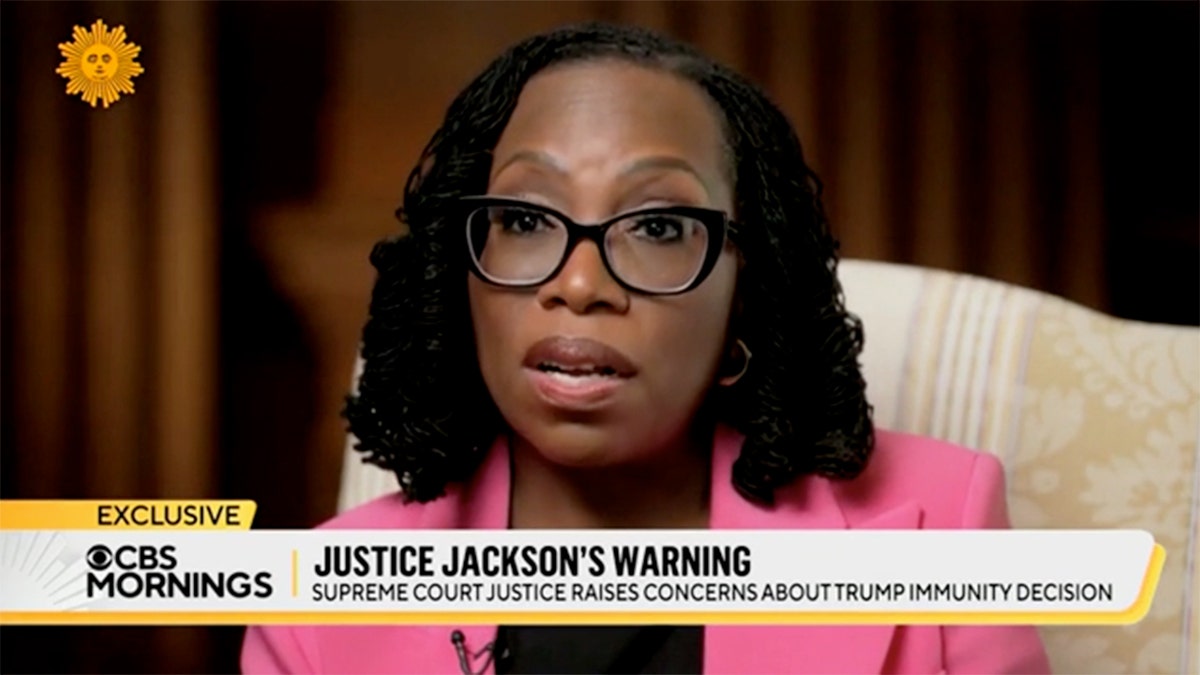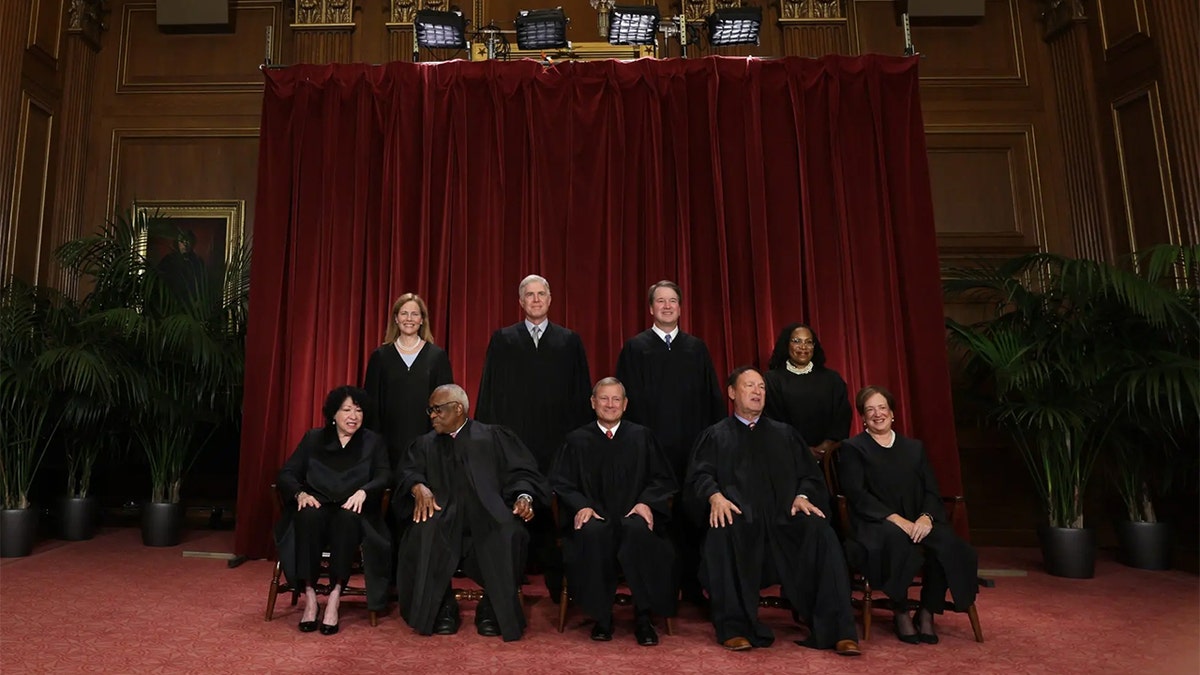Ketanji Brown Jackson tells CBS News she was 'concerned' about Trump immunity
Supreme Court Justice Ketanji Brown Jackson told CBS News' Norah O'Donnell in a recent interview that she was 'concerned' about the majority opinion's ruling in the Trump immunity case.
Supreme Court Justice Ketanji Brown Jackson told CBS News' Norah O'Donnell during a recent interview that she was worried about the Trump immunity ruling.
"I was concerned about a system that appeared to provide immunity for one individual under one set of circumstances, when we have a criminal justice system that had ordinarily treated everyone the same," she said.
Jackson, who was nominated to the Supreme Court by President Biden in 2022, wrote a dissenting opinion in the Supreme Court's immunity decision. The Supreme Court ruled in July that a former president has substantial immunity from prosecution for official acts committed while in office, but not for unofficial acts.
"The court has now declared for the first time in history that the most powerful official in the United States can (under circumstances yet to be fully determined) become a law unto himself," Jackson wrote in her dissent.

Supreme Court Justice Ketanji Brown Jackson spoke to CBS News' Norah O'Donnell about the Trump immunity decision. (Screenshot/CBS)
TRUMP IMMUNITY CASE: SUPREME COURT RULES EX-PRESIDENTS HAVE SUBSTANTIAL PROTECTION FROM PROSECUTION
O'Donnell noted that her words sounded like a "warning."
"That was my view of what the court determined," Jackson responded.
In the majority opinion, Chief Justice Roberts wrote, "The President is not above the law. But Congress may not criminalize the President’s conduct in carrying out the responsibilities of the Executive Branch under the Constitution. And the system of separated powers designed by the Framers has always demanded an energetic, independent Executive."
O'Donnell also asked Jackson if the Supreme Court was prepared for the 2024 election to come before the court.

The Supreme Court justices pose for their official portrait in the East Conference Room of the Supreme Court building in Washington, D.C., on Oct. 7, 2022. (Alex Wong/Getty Images)
CLICK HERE FOR MORE COVERAGE OF MEDIA AND CULTURE
"As prepared as anyone could be," she responded.
"I think there are legal issues that arise out of the political process, and so the Supreme Court has to be prepared to respond if that should be necessary," Jackson said.
Jackson, along with Justices Elena Kagan and Sonia Sotomayor, described a series of hypothetical scenarios about what the majority opinion's ruling might mean in their dissent.
The three wrote that the court's majority opinion "makes a mockery of the principle, foundational to our Constitution and system of Government, that no man is above the law."
CLICK HERE TO GET THE FOX NEWS APP
"The President of the United States is the most powerful person in the country, and possibly the world. When he uses his official powers in any way, under the majority’s reasoning, he now will be insulated from criminal prosecution," Sotomayor wrote. "Orders the Navy’s Seal Team 6 to assassinate a political rival? Immune. Organizes a military coup to hold onto power? Immune. Takes a bribe in exchange for a pardon? Immune. Immune, immune, immune."
Noting that the president's removal of a cabinet member would constitute an official act, Jackson wrote in her dissent that "while the President may have the authority to decide to remove the Attorney General, for example, the question here is whether the President has the option to remove the Attorney General by, say, poisoning him to death."
"Put another way, the issue here is not whether the President has exclusive removal power, but whether a generally applicable criminal law prohibiting murder can restrict how the President exercises that authority," she added.
Fox News' Brianna Herlihy contributed to this report.

